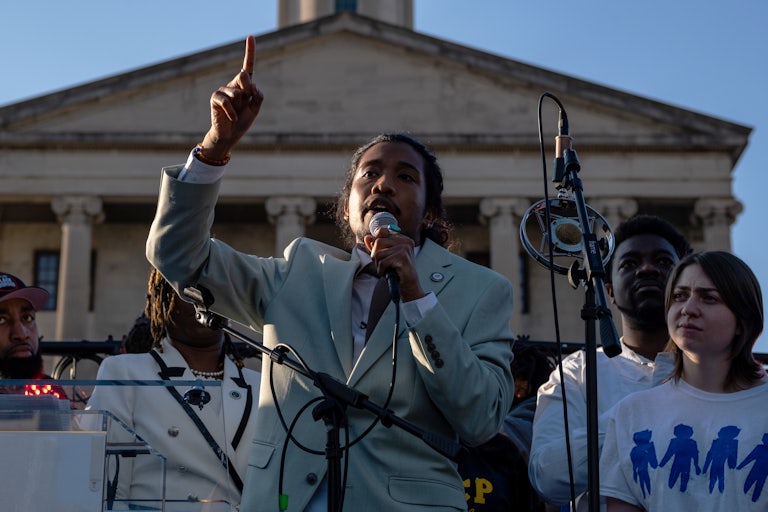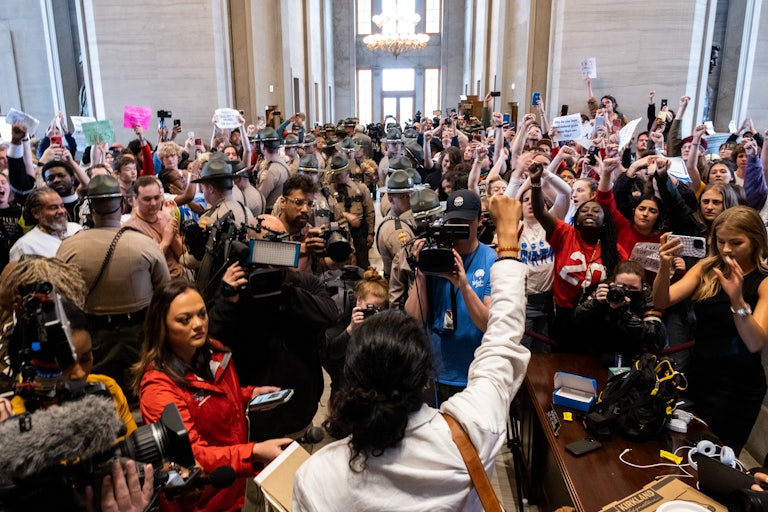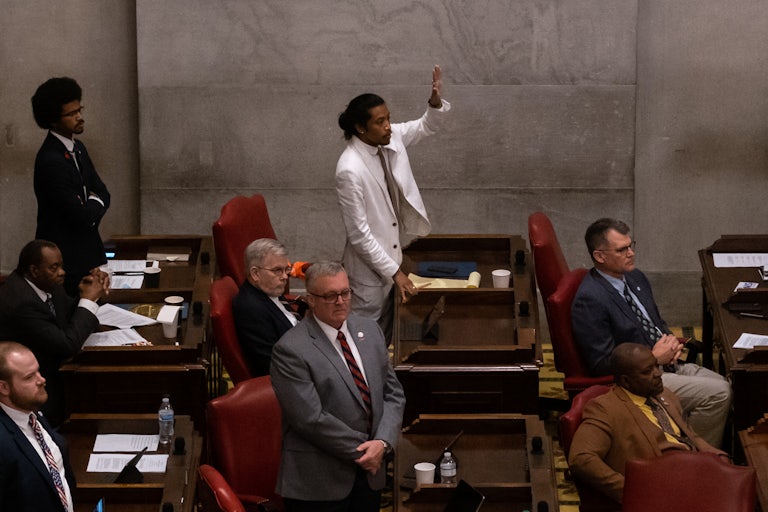Reinstated Tennessee Lawmaker Promises Every New Bill He Files Will Be on Guns
Justin Jones is back in his seat after Republicans expelled him. And he’s advancing the fight that got him kicked out in the first place.

Tennessee state Representative Justin Jones is back in the seat Republicans expelled him from after the Democrat stood in solidarity with thousands protesting gun violence. And now, he promises that every single bill he introduces as a “new member” will be focused on advancing the fight that prompted his expulsion: stopping gun violence.
“They told me today I can file 15 bills because I’m now technically a new member. Every one of those bills is going to have to do with commonsense gun laws,” Jones told CNN on Monday. “Every single one of those bills is going to have to do with that because that’s what these young people are begging us to do. And so when I come tomorrow, I’m going to work on that legislation, get it to the speaker’s office, and let’s take action before we adjourn from session.”
Jones was expelled from the Tennessee state legislature last week, before the Nashville Metro Council unanimously voted Jones right back on Monday night. He and colleague Justin Pearson, who are both Black, were expelled by Republicans after standing in solidarity with thousands of Tennesseans protesting gun violence in the aftermath of the Nashville mass shooting that left three children and three adults dead. Their colleague Gloria Johnson, who is white, joined them in the protests but survived an expulsion proceeding by one vote.
Jones and Pearson, if reelected as expected, will be interim representatives until special elections are held for both districts.
Republicans, in their anti-democratic efforts to remove members inconvenient to their ideology, have in effect lost on all counts. By so blatantly disregarding public concern after a horrifying mass shooting, they’ve awakened and mobilized thousands of Tennesseans who may have previously been apolitical, unmotivated, or even conservative. They’ve brought nationwide attention to their misdoings—not just the expulsion of members who stood in solidarity with parents, teachers, and students but also the way they have used their supermajority to make up their own rules, filing bills with no notice to the public and killing other bills on no coherent basis other than their own personal preferences.
Finally, they’ve brought millions of people’s attention and support to Jones, Pearson, and Johnson. And with Jones returning, and Pearson perhaps not far behind, the expulsion is not martyrdom but the start of a new battle against the Republican Party.
Millions of people are now monitoring Republicans’ every single move—and what they choose to do with every one of the 15 gun control bills Jones has promised to file. Any further inaction is all the more blatant in the aftermath of yet another mass shooting in neighboring Louisville, Kentucky. Republicans’ time of lazily waving away bills or making up their own rules has come to an end.
And it was all their own doing.








